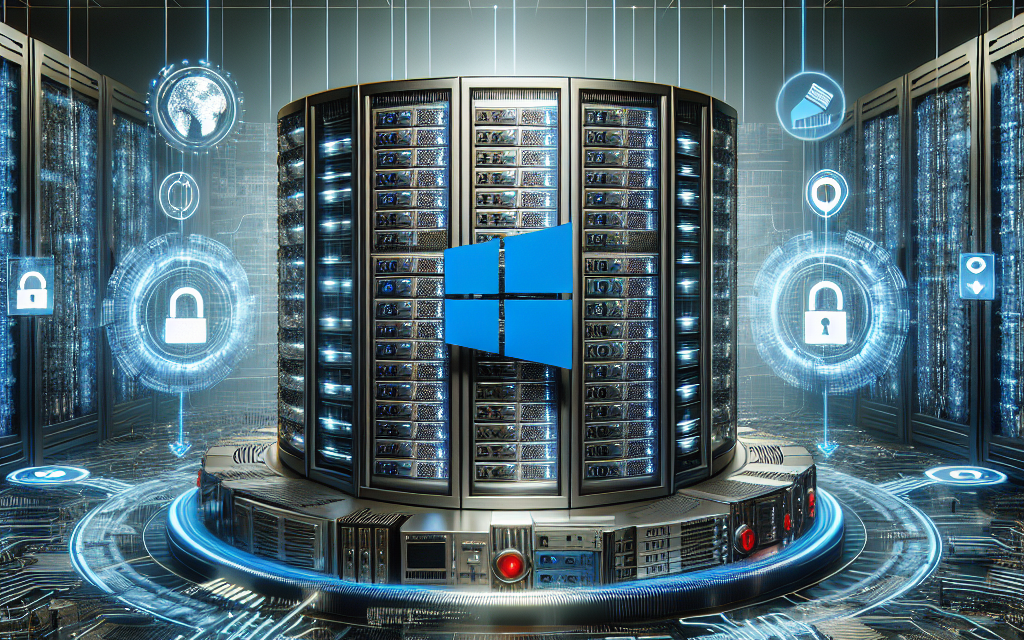In an age where data breaches and security violations are increasingly common, ensuring the integrity and confidentiality of sensitive information is paramount for organizations. As cyber threats evolve, so too must the strategies we employ to safeguard our data. Microsoft Windows Server remains a pivotal player in the enterprise landscape, providing a rich set of encryption features designed to enhance data security. This article explores the encryption capabilities of Windows Server, focusing on how they can safeguard your organization’s data now and in the future.
Understanding Windows Server Encryption Features
1. BitLocker Drive Encryption
One of the standout features of Windows Server is BitLocker, a full disk encryption solution that protects data by encrypting entire volumes. This feature is crucial for safeguarding sensitive information stored on physical drives, making it accessible only to authorized users. BitLocker employs the AES encryption algorithm and integrates with hardware platforms that support the Trusted Platform Module (TPM), offering robust protection against unauthorized access.
Key Benefits:
- Data Protection Against Theft: If a server is stolen or compromised, the encrypted data remains secure.
- Transparent Operation: Once configured, encryption and decryption happen seamlessly in the background, minimizing user intervention.
- Pre-Boot Security: By enforcing pre-boot authentication, BitLocker ensures that the operating system can only boot on trusted devices.
2. Encrypting File System (EFS)
The Encrypting File System (EFS) is another powerful feature that enables file-level encryption on Windows Server. EFS allows users to encrypt individual files and folders, ensuring that even if unauthorized users gain access to the file system, the contents remain protected.
Key Benefits:
- Granular Control: Administrators and users can selectively encrypt files, ensuring protection where it is most needed.
- Automatic Permissions Management: EFS automatically handles encryption keys, simplifying the management of access rights for different users.
- Integration with Active Directory: EFS can leverage Active Directory to manage encryption keys, further enhancing security and compliance.
3. Transport Layer Security (TLS)
Transport Layer Security (TLS) is essential for securing data in transit across various network connections. Windows Server supports TLS protocols, ensuring that information transmitted over the network remains confidential and intact.
Key Benefits:
- Secure Communication: TLS encrypts data sent between clients and servers, preventing eavesdropping or tampering by malicious actors.
- Data Integrity: TLS not only encrypts data but also ensures it remains unaltered during transmission.
- Widespread Compatibility: As a widely recognized standard, TLS can be implemented across various applications and services hosted on Windows Server.
4. Windows Defender Credential Guard
Windows Server leverages virtualization-based security through Windows Defender Credential Guard, which protects user credentials by storing them in a secure environment. This allows Windows Server to defend against credential theft attacks, a common method used by cybercriminals.
Key Benefits:
- Enhanced Credential Protection: By isolating credentials from the operating system, even if the OS is compromised, credentials remain secure.
- Reduced Attack Surface: With Credential Guard, the number of vectors available for attack is significantly reduced, enhancing overall security.
Future Trends in Data Security and Windows Server
As organizations evolve, so too must their approach to data security. The future of Windows Server encryption features is poised to be influenced by key trends:
- Integration of Artificial Intelligence (AI): AI will increasingly be used to enhance encryption and data loss prevention capabilities, providing intelligent threat detection and response.
- Zero Trust Architecture: Moving towards a zero-trust model, Windows Server will increasingly emphasize user verification, regardless of location, leveraging multi-factor authentication and secure access controls.
- Quantum-Safe Algorithms: As quantum computing evolves, traditional encryption methods may become vulnerable. Windows Server will need to adopt quantum-resistant encryption algorithms to safeguard future data.
Conclusion
As data breaches continue to pose significant risks, the encryption features offered by Windows Server provide a robust defense mechanism for organizations seeking to protect their sensitive information. With capabilities like BitLocker, EFS, TLS, and Credential Guard, Windows Server is well-equipped to meet the challenges of today and tomorrow in data security. By proactively implementing and leveraging these encryption features, organizations can fortify their defenses against evolving cyber threats and ensure the integrity and confidentiality of their valuable data.
For more insights and information on securing your IT infrastructure, stay tuned to WafaTech Blogs!





